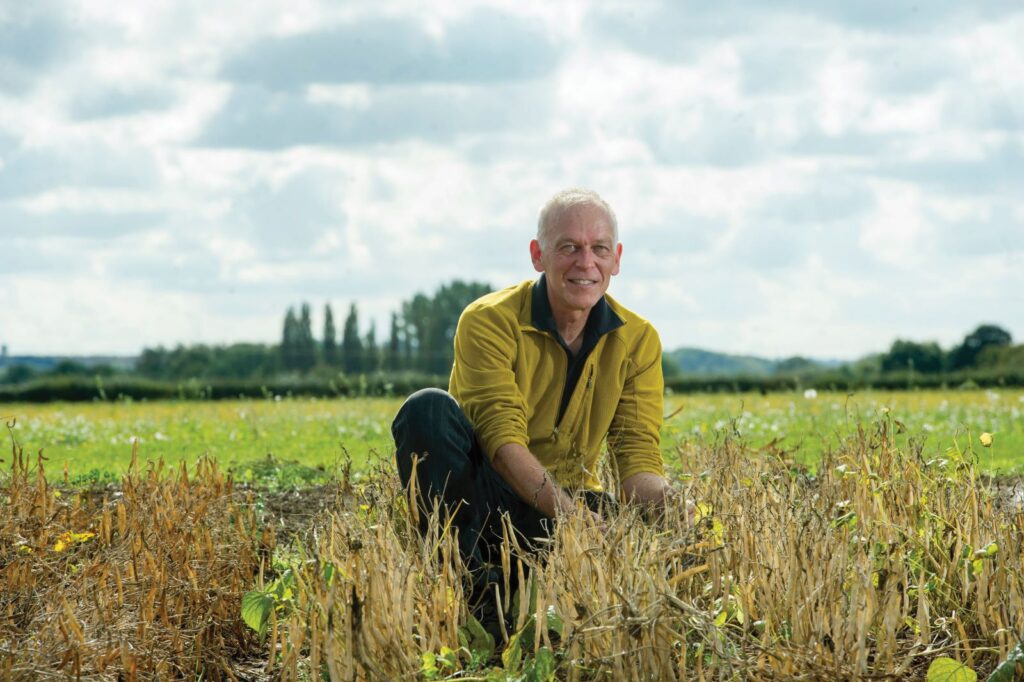Baked beans could become a crop of choice for British growers
19th June 2023
A University of Warwick research project is looking to see haricot beans, otherwise known as the classic baked bean, grown on a commercial scale in the UK to reduce food miles, improve soil structure, and extend farm rotations with a short-season, nitrogen-fixing crop desired by British growers.

University of Warwick Professor Eric Holub in a field of haricot beans.
To date, the UK has relied on imports of baked beans to supply the nation due to the lack of adequate climate and soil conditions needed for the successful cultivation of the crop. However, the research project aims to challenge the status quo by adopting growing practices to the UK’s unique environment.
In a move to promote sustainable food production and food security, the University of Warwick has developed innovative farming techniques tailored specifically to the cultivation of baked beans.
By harnessing the latest agricultural technologies and insights from the University of Warwick, Lincolnshire farmer Andrew Ward has become the first in the UK to grow a full crop of baked beans, which he hopes will reduce reliance on imports and ensure a consistent supply of this ultimate British staple breakfast item.
He commented: “It’s the first commercial-scale planting of a variety of haricot beans that could end up in a can on everybody’s supper table. At the moment we don’t have any beans that are grown here that are suitable for baked beans, our climate isn’t right for producing this type of bean.”
Other than helping to achieve climate goals in the food sector, growing baked beans in the UK would enable local farmers to diversify their crop production and explore new market opportunities, while allowing consumers to enjoy the freshest and highest quality produce sourced from closer to home.
Professor Eric Holub, from Warwick’s Crop Centre, part of the School of Life Sciences, has bred three haricot bean varieties that are adapted for growing in the UK climate and are more suited to standard farm machinery.
The new varieties – a blonde bean named Godiva, along with the white Capulet and black Olivia – have been selected for their versatility and are also suitable for commercial canning in British baked beans.
Commenting on the research, Professor Holub said: “Ensuring we can produce our own food is crucial in lessening our impact on the planet. British-grown beans can play a big part in shaping a healthier future for all of us. They’re a fantastic addition to our diets and contribute to the rise of flexitarian eating habits.”
